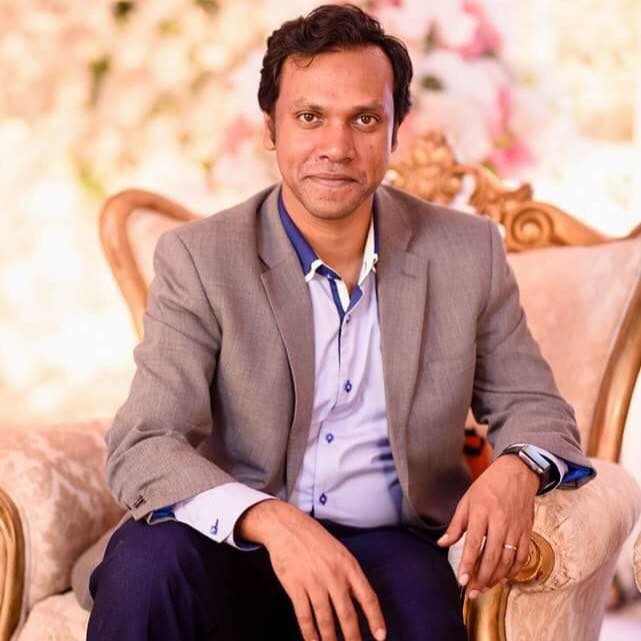PROFILE DETAILS
headwre@cuet.ac.bd
Cement Chemistry; Durability of concrete structures; Corrosion monitoring of reinforced concrete in the marine environment; Sustainable concrete construction; Applications of fibre reinforcement in concrete; Structural retrofitting and strengthening and Porous concrete.
a) PhD in Concrete and Construction, University of Dundee, United Kingdom;
b) M. Engg. in Built Environment, Hokkaido University, Japan; and
c) B. Sc. in Civil Engineering, (CUET).
------------------------------------------------------------------------
Courses Conduced
Undergraduate Courses:
1. Prestressed Concrete (Level-4, Term-II);
2. Design of Concrete Structures - II (Level-3, Term-II);
3. Design of Concrete Structures - I (Level 3, Term-I);
4. Mechanics of Materials - II (Level-2, Term-II);
5. Design of Concrete Structure (Sessional) (Level-3, Term-II);
6. Engineering Materials (Sessional) (Level-2, Term-I);
7. Civil Engineering Drawing (Level-1, Term-I).
Post Graduate Courses:
1. Advanced Concrete Technology
2. Life Cycle of Structures
3. Advanced Design of Concrete Structures
Post Graduate Degree Supervised:
1. Muhammad Tanveer Rahian (2023) Properties of Roller Compacted Concrete Using Steel Slag (SS) Aggregate. Master of Engineering Thesis. Department of Civil Engineering, CUET. (Upcoming)
2. Nusrath Jaha (2022) Ionizing radiation protection efficiency of common mortar and concrete used for infrastructure construction in Bangladesh. Master of Engineering Thesis. Department of Civil Engineering, CUET.
3. Goutam Barua (2022). Improving the performance of environment-friendly permeable concrete using polypropylene fiber. MSc Engineering in Disaster and Environmental Engineering Thesis. Department of DEM, CUET.
4. Md. Mamun Hossain (2021) Eco-friendly use of waste pumice in mortar and concrete. MSc Engineering Thesis. Department of Civil Engineering, CUET.
5. Iffat Sultana (2021). A Study on the Cementitious Properties of Ladle Slag in Concrete. Master of Science in Civil Engineering Thesis. Department of Civil Engineering, CUET.
6. Sabrina Islam (2020). An Experimental Study on the Behaviour of Slag Blended Concrete in Acidic Environment. Master of Engineering Thesis. Department of Civil Engineering, CUET.
7. Jonayed Kaiser Sourav (2019) Properties of Green Concrete using Waste Ceramic. Master of Engineering Thesis, Department of Civil Engineering, CUET.
8. S. M. Asaduzzaman (2018) A Study on the Properties of Jute Fiber Reinforced Concrete. Master of Engineering Thesis, Department of Civil Engineering, CUET.
9. Niaz Mohammad Mamun (2016) Flexural Capacity Assessment of Brick Chips RC Beam Reinforced with Carbon Fiber Polymer. MSc Thesis, Department of Disaster and Environmental Engineering, CUET (Co-supervisor).
BEST PAPER AWARDS:
§ Best Paper Award in Structural Engineering Category in the 6th International Conference on Civil Engineering for Sustainable Development (ICCESD 2022), 10-12 February, 2022, KUET, Khulna, Bangladesh for the research paper titled "Service life and environmental performance simulation of concrete structure using SCMs as partial replacement of OPC."
§ Best Paper Award in Structural Engineering Category in the 5th International Conference on Advances in Civil Engineering (ICACE 2021), 4-6 March, 2021, CUET, Chattogram, Bangladesh for the research paper titled "Slag and Silica Fume based Geopolymer Mortar using Locally Available Waste Filler Materials"
§ Best Paper Award in Structural Engineering Category in the 5th International Conference on Civil Engineering for Sustainable Development (ICCESD 2020), 7-9 February, 2020, KUET, Khulna, Bangladesh for the research paper titled "Non-fired Building Block Using Industrial Wastes"
RESEARCH GRANTS:
§ Optimization of ternary combined geopolymer using artificial neural network (ANN) - from University Grants Commission of Bangladesh – 2022.
§ Geopolymer using brick-based recycled mixed demolition waste - from University Grants Commission of Bangladesh – 2022.
§ Appraisal of Heavy Metal Leaching from Waste Materials Building Blocks from University Grants Commission of Bangladesh – 2022.
§ Field Trial of Clay Free Unfired Brick - introducing a clean brick manufacturing in Bangladesh from Research England, United Kingdom – 2021.
§ Ionizing Radiation Shielding Effectiveness of Common Mortar and Concrete used for Construction in Bangladesh - from University Grants Commission of Bangladesh – 2021.
§ Development of non-fired brick replacing agricultural clay by alternative material - from Research England, United Kingdom – 2019.
§ Application of Waste Plastic Bottle as a Sustainable Low-cost Housing Material for Bangladesh - from University Grants Commission of Bangladesh – 2018.
§ Durable Concrete Design Guidelines for Bangladesh using Chloride Mapping- from University Grants Commission of Bangladesh – 2018.
§ Comparative analysis of strength and thermal insulation properties of fiber reinforced mud blocks as wall material - from University Grants Commission of Bangladesh – 2017.
§ Waste Tiles/Ceramic Product for Making Green
Concrete- from University Grants Commission of Bangladesh – 2017.
§ Behavior of Reinforce Concrete Beams Strengthened
with CFRP Materials - from University Grants Commission of Bangladesh – 2014.
§ Evaluating Glass Product as a Supplementary
Cementitious Material from University Grants Commission of Bangladesh – 2013.
| Serial No | Title | Authors | Informations | Year |
|---|

